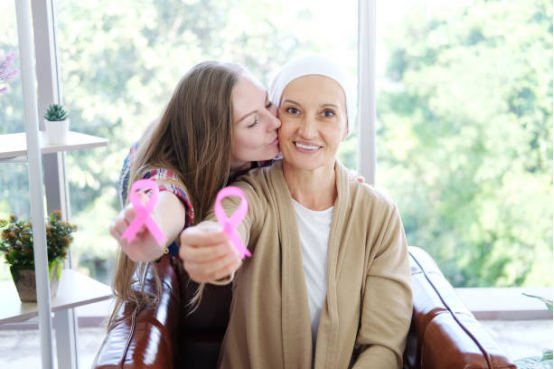Advancements in the Treatment of HER2-Positive Breast Cancer: A New Era of Precision Medicine
HER2-positive breast cancer represents approximately 20-25% of all breast cancer cases and is characterized by the overexpression of the HER2 protein.
HER2-positive breast cancer represents approximately 20-25% of all breast cancer cases and is characterized by the overexpression of the HER2 protein.

This subtype of breast cancer has historically been associated with poor outcomes due to its aggressive nature. However, the advent of targeted therapies has revolutionized the treatment landscape, offering more effective management strategies and improved survival rates.
The Role of Targeted Therapy in HER2-Positive Breast Cancer Treatment
Targeted therapies have played a crucial role in transforming the management of HER2-positive breast cancer. These therapies specifically target the HER2 protein, which drives the growth of cancer cells in this subtype. By blocking HER2’s signaling pathways, these treatments inhibit the proliferation of cancer cells while sparing normal, healthy tissue. This approach is a significant improvement over traditional treatments that affect both cancerous and healthy cells, often leading to more severe side effects.
Key Targeted Therapies for HER2-Positive Breast Cancer
The introduction of drugs like trastuzumab (Herceptin) and pertuzumab (Perjeta) has marked a significant milestone in the treatment of HER2-positive breast cancer. Trastuzumab works by binding to the HER2 receptors on cancer cells, preventing their growth and survival. Pertuzumab, often used in combination with trastuzumab, targets the HER2 receptor in a different way, providing a more comprehensive blockade of the receptor’s activity.
Early Clinical Evidence and Success of Targeted Therapies
Clinical trials have shown that the addition of targeted therapies significantly improves survival rates and reduces the risk of recurrence in HER2-positive breast cancer. These therapies have also been associated with fewer and more manageable side effects compared to conventional chemotherapy. Additionally, ongoing studies suggest that combining targeted therapies with other treatment modalities like immunotherapy could lead to even more promising outcomes.
Challenges and Future Prospects
While the effectiveness of targeted therapies has greatly improved treatment outcomes, challenges still exist. Resistance to HER2-targeted treatments remains a significant concern, and researchers are working on developing next-generation therapies to overcome this obstacle. Furthermore, identifying patients who will benefit the most from these therapies is still an area of active investigation.
Conclusion
The treatment of HER2-positive breast cancer has seen remarkable progress thanks to the development of targeted therapies. Drugs like trastuzumab and pertuzumab have provided new hope for patients, significantly improving survival rates and quality of life. As research continues to explore new ways to enhance these therapies and overcome resistance, the future of HER2-positive breast cancer treatment is promising, offering hope for even better outcomes in the years to come.